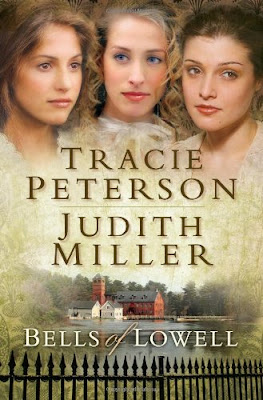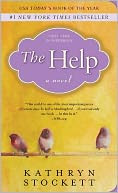Daughter Of The Loom by Tracie Peterson and Judith Miller
This is book #1 in the Bells Of Lowell series.
Forced to work in the mill as her only means of survival, Lilly Armbruster is deeply resentful of the powerful mill owners she believes forced her father’s premature death. Lily is torn, however, when she discovers her one-time betrothed is one with the “lords of the loom.” With her heart conflicted, Lilly’s faith will be put to the test.
Lilly’s life has taken an unexpected turn. Her father is dead and her farm has been sold to a group of people. This group of people, the Boston Associates, want to expand the mills, therefore getting rid of most of the farms. Lilly loved her farm and her ex-beau, Matthew, has joined the Associates, stating that the mills will bring prosperity to Lowell.
Lilly’s brother, Lewis, has gambled away the money that they’ve received from the sale of the farm, so Lilly is left penniless. She must now work to survive and the only job she can find is at the mills, working in the factory making fabric. She’s determined to bring justice into Lowell by putting a stop to the mill operations. However, Lilly needs to learn that vengeance is not something she should take into her own hands.
I thought this book was a good read. The story shows that we need to forgive others for their transgressions. There were so many issues that were dealt with in this book that it’s hard to name them all. Sibling rivalry is one issue that the characters needed to work out. Lilly and her brother Lewis have never gotten along. Lilly finds it hard to forgive Lewis for his gambling, drinking and lewd behavior. Lewis tortured her when they were children, and Lilly finds it hard to understand why her brother hates her so much.
There’s also a set of spinster sisters who run boarding houses for the mill workers. These sisters must learn to overcome their differences to restore their sisterly relationship. And there’s also the issue of lost love. Lilly has broken her engagement to Matthew because she holds him responsible for her father’s death as well as the loss of her farm. Lilly needs to learn that she should listen to God’s voice and really assess the value of the mills instead of taking matters into her own hands.
I thought this book was interesting because it showed the young women working in the mills in the 1800’s. Seeing them turning thread into fabric and seeing spindles, threads, looms, etc. was interesting. Working in the mills is hard on Lilly since she wanted to stay on her farm. Plus there’s a great deal of turmoil at work due to a lewd foreman who threatens the female workers. I thought the work situation was very realistic. The women worked long days with only a half hour for lunch and breakfast. The female workers would have only 30 minutes to rush back to their boarding houses, wolf down their food, and then return to the mills.
Overall a good read. I look forward to reading the other two books in the series.






